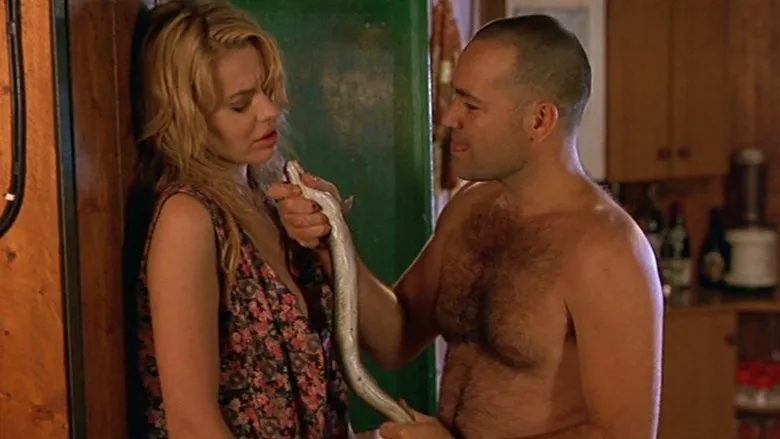Bambola

Plot
In the Italian drama, Bambola, we meet our protagonist Mina, nicknamed Bambola by those close to her, a name that holds significant emotional weight given the tumultuous nature of her life. Following the passing of her mother, Bambola finds herself in a precarious situation, forced to navigate the complexities of adulthood alongside her homosexual brother, Flavio. The siblings decide to join forces and open a pizzeria, an ambitious venture that ultimately serves as a catalyst for the events that unfold. As the pizzeria begins to take shape, Bambola captures the attention of Ugo, a well-intentioned but troubled individual who ultimately loans her the money she needs to keep her business afloat. However, their relationship takes a dark turn when Ugo is brutally murdered in a street fight with Settimio, another one of Bambola's complicated romantic interests. This event sets off a chain reaction of chaos and heartbreak that threatens to consume Bambola's already fragile world. In the wake of Ugo's death, Bambola finds herself forced to cope with the aftermath of his passing, all while managing her tumultuous relationships. A visit to Settimio in prison serves as a turning point in the narrative, where Bambola meets Furio, a brooding and emotionally repressed individual who exudes a sense of sadness and desperation. Their encounter has far-reaching consequences, as Bambola becomes increasingly entwined with Furio, despite his disturbing behavior and propensity for aggression. Furio's presence in Bambola's life raises questions about her capacity for self-destruction and the inherent dangers of her relationships. As the narrative unfolds, it becomes clear that Bambola is drawn to individuals who mirror her darker impulses, individuals like Settimio and now Furio, who embody the destructive and tumultuous aspects of her own personality. Their connection is rooted in a twisted game of cat and mouse, with Furio exerting control over Bambola through his sadistic and emotionally manipulative behavior. Through her relationships, Bambola's character serves as a poignant metaphor for the human capacity for self-destruction. Her associations with Ugo, Settimio, and ultimately Furio, embody a cyclical pattern of abuse and trauma that leaves her emotionally battered and vulnerable. Her decision to engage in these relationships can be seen as a desperate attempt to cope with the void left by her mother's passing, a void that can only be filled by individuals who mirror her darker impulses. The narrative's exploration of Bambola's character raises questions about the societal expectations placed on young women, particularly those from lower socioeconomic backgrounds. Her struggles to navigate her relationships and maintain a sense of independence in the face of adversity serve as a powerful reminder of the systemic barriers that often stand in the way of women's empowerment. As the narrative draws to a close, Bambola finds herself at a crossroads, forced to confront the consequences of her actions and the relationships that have defined her life. Her decision to leave Furio serves as a moment of reckoning, a chance for her to break free from the cycle of abuse and trauma that has haunted her for so long. However, the ambiguity of the narrative's conclusion raises questions about the extent to which Bambola has truly changed, and whether her experiences have been transformative or merely a catalyst for further self-destruction.
Reviews
Recommendations





